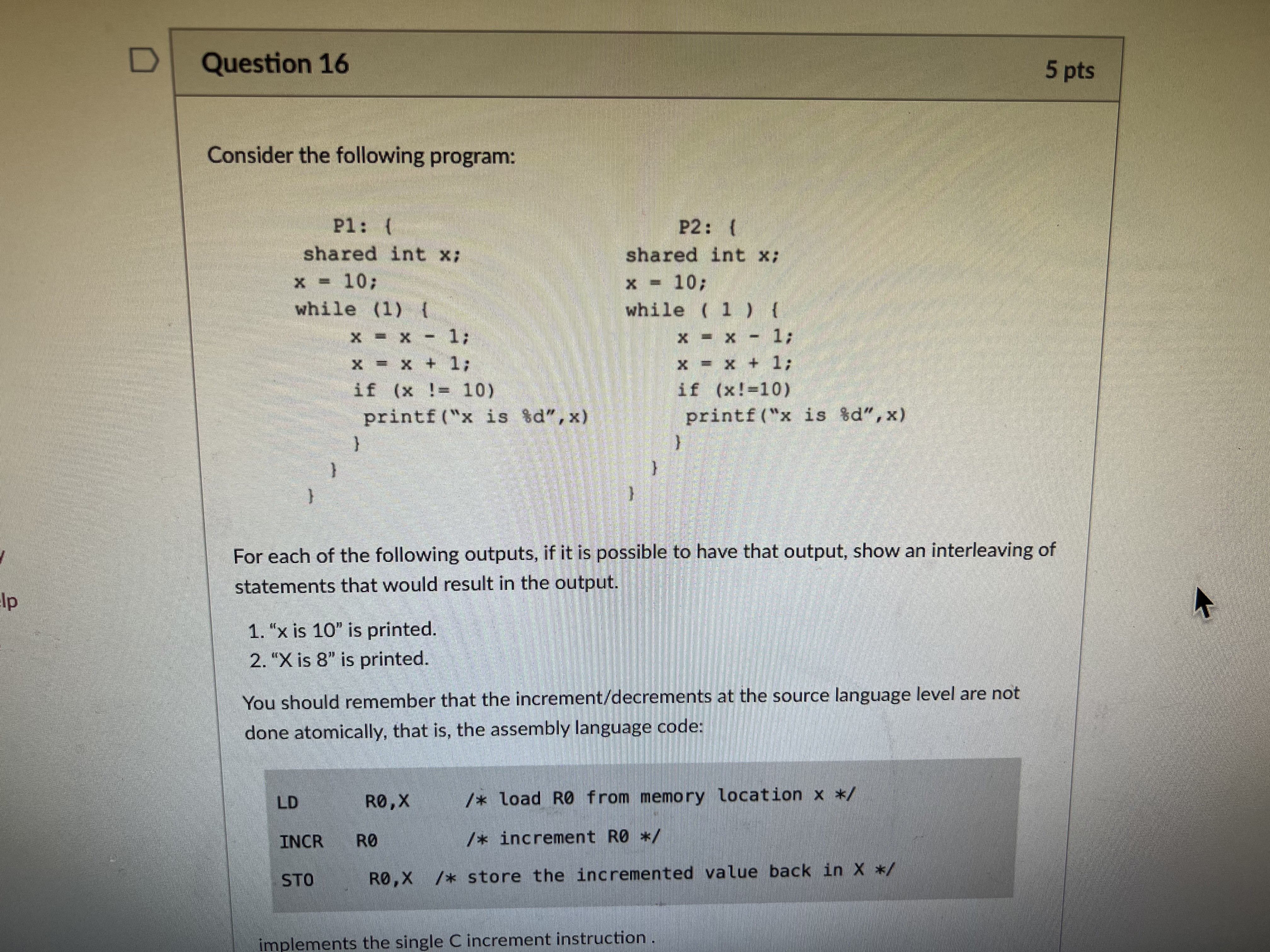Answered step by step
Verified Expert Solution
Question
1 Approved Answer
Yes, this execution can result in deadlock.Deadlock occurs when two or more processes are unable to proceed because each is waiting for the other to
Yes, this execution can result in deadlock.Deadlock occurs when two or more processes are unable to proceed because each is waiting for the other to release a resource. In this case, if both processes acquire semaphore x and then try to acquire semaphore y they may end up waiting indefinitely for each other to release the semaphore.Example execution sequence that results in deadlock:Process acquires semaphore x Process acquires semaphore x Process tries to acquire semaphore y but it is held by process so process waits. Process tries to acquire semaphore y but it is held by process so process waits.Both processes are now waiting for each other to release the semaphore, resulting in a deadlock.No this execution cannot result in starvation.Starvation occurs when a process is perpetually denied necessary resources. In this case, since both processes have equal access to the semaphores and there is no priority given to any process, neither process will be perpetually denied access to the resources. Therefore, starvation cannot occur in this execution.

Step by Step Solution
There are 3 Steps involved in it
Step: 1

Get Instant Access to Expert-Tailored Solutions
See step-by-step solutions with expert insights and AI powered tools for academic success
Step: 2

Step: 3

Ace Your Homework with AI
Get the answers you need in no time with our AI-driven, step-by-step assistance
Get Started


